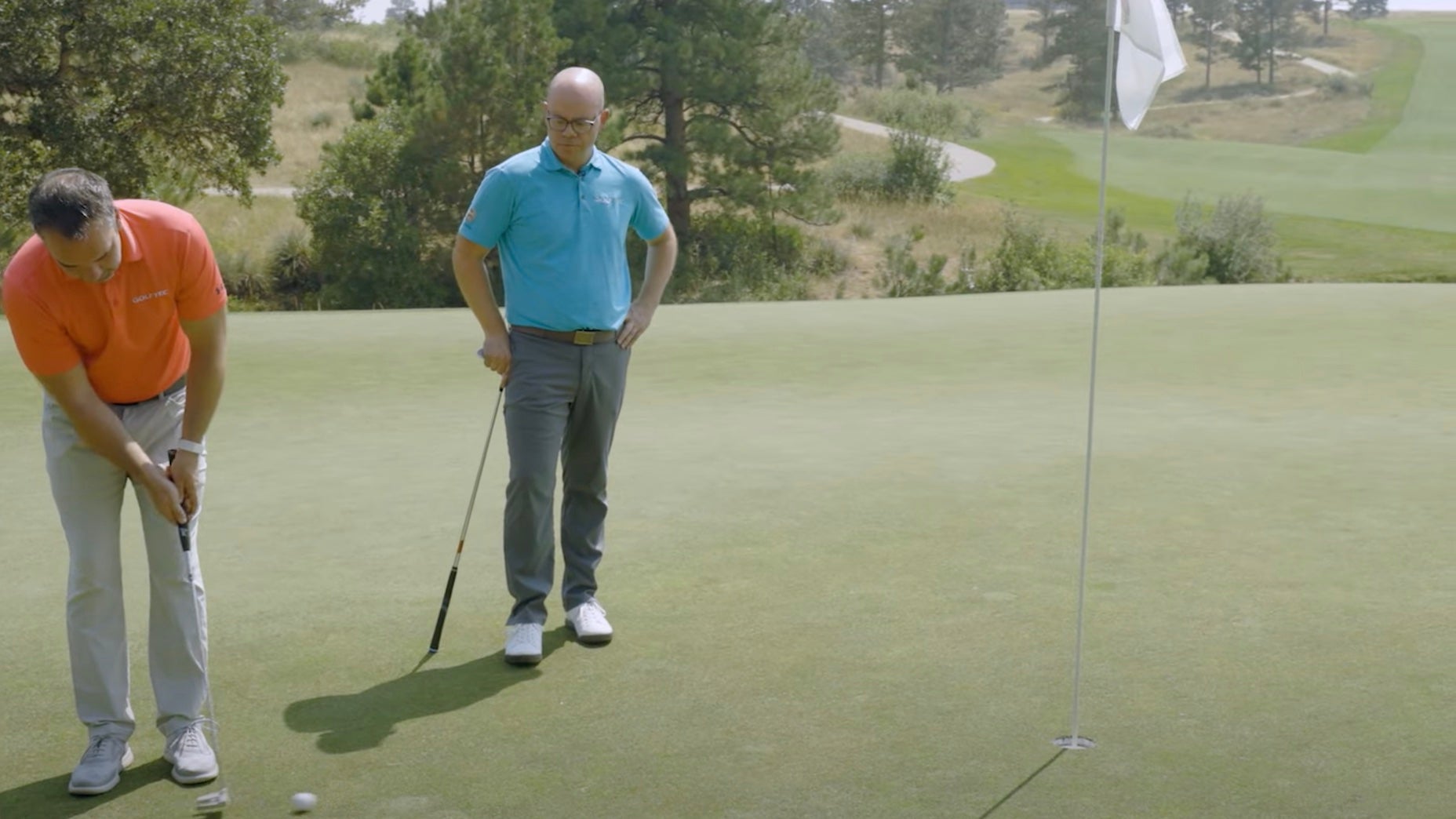Amateur golfers don’t have the luxury of spending hours upon hours working on their games like the pros, or junior golfers. It means we have to be smarter about the ways we practice. We need to make the time we do have count. And never is that more important than on the putting green.
Thankfully, GOLFTEC VP and GOLF Top 100 Teacher Nick Clearwater, in the video below, shares some great advice about how to do exactly that.
DON’T practice 20 to 25 footers

Swing Evaluation or Club Fitting for $125
I’m certainly guilty of this. You get to a putting green, drop a couple of balls down about 20 feet away, and begin rolling putts aimlessly.
The problem is that while practicing these doesn’t hurt, necessarily, it doesn’t particularly help either. Golfers don’t tend to have lots of putts within 20 to 25 feet on the course, and when they do, it usually ends in uneventful two-putts. The make rate on tour is just 12 percent.
Instead, Clearwater recommends spending more time practicing two different kinds of putts: Those that you’re in danger of three putting, and short putts you’re expected to make.
DO practice 30 footers, and putts inside 10 feet
How you perform between five to 10 feet is one of the key separators of skill for pro golfers, and those who shoot in the 70s. Meaning, in simple terms, the better golfer you are, the more short putts you make. So practice making more of them!
This is also true for longer putts of 30 feet and longer. Tour players average almost exactly two putts from 30 feet, whereas average amateur golfers are closer to three putts. Spending a few extra minutes practicing long putts can help with this: It’ll improve your sense of green reading, speed control, and confidence.

